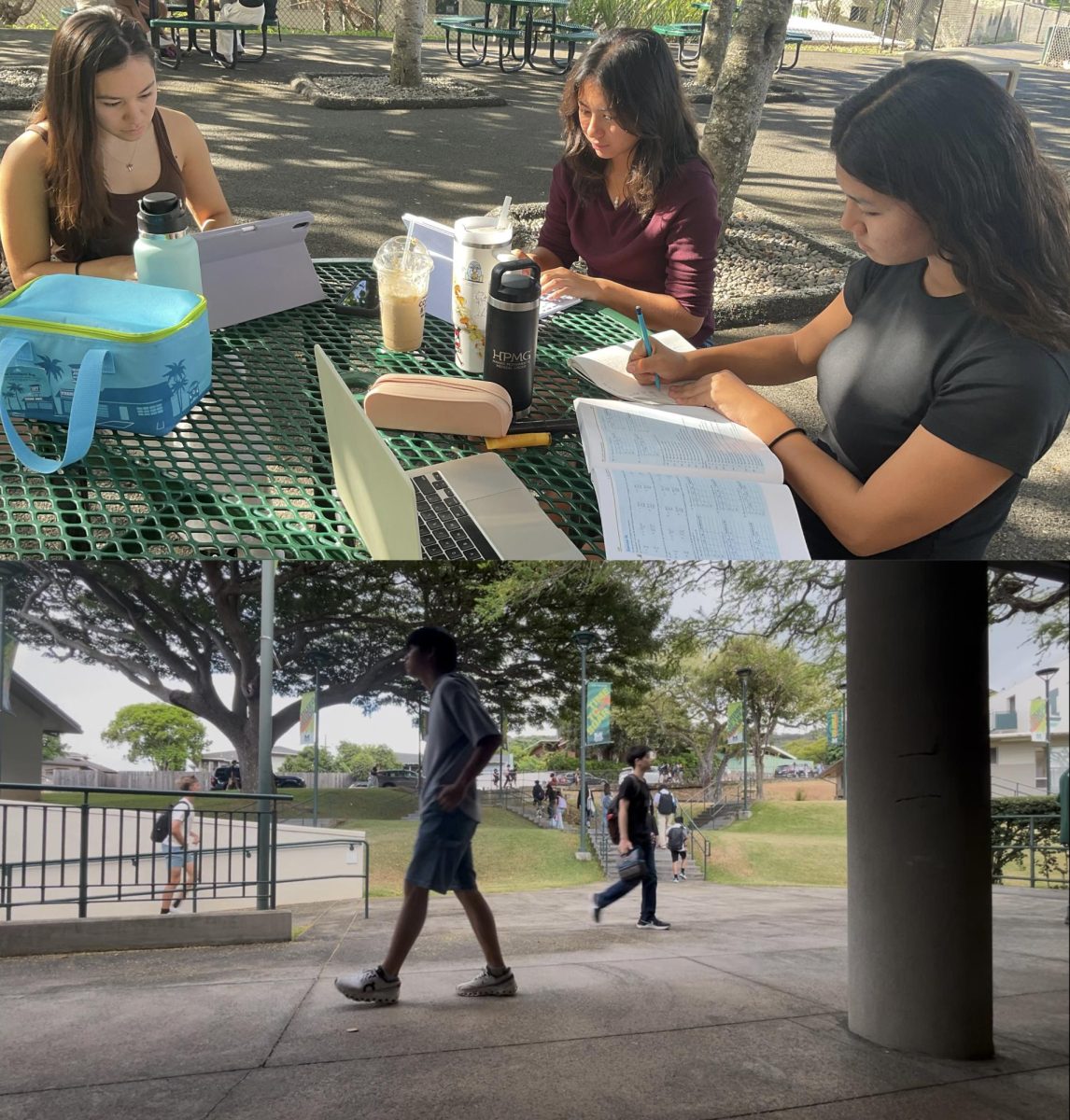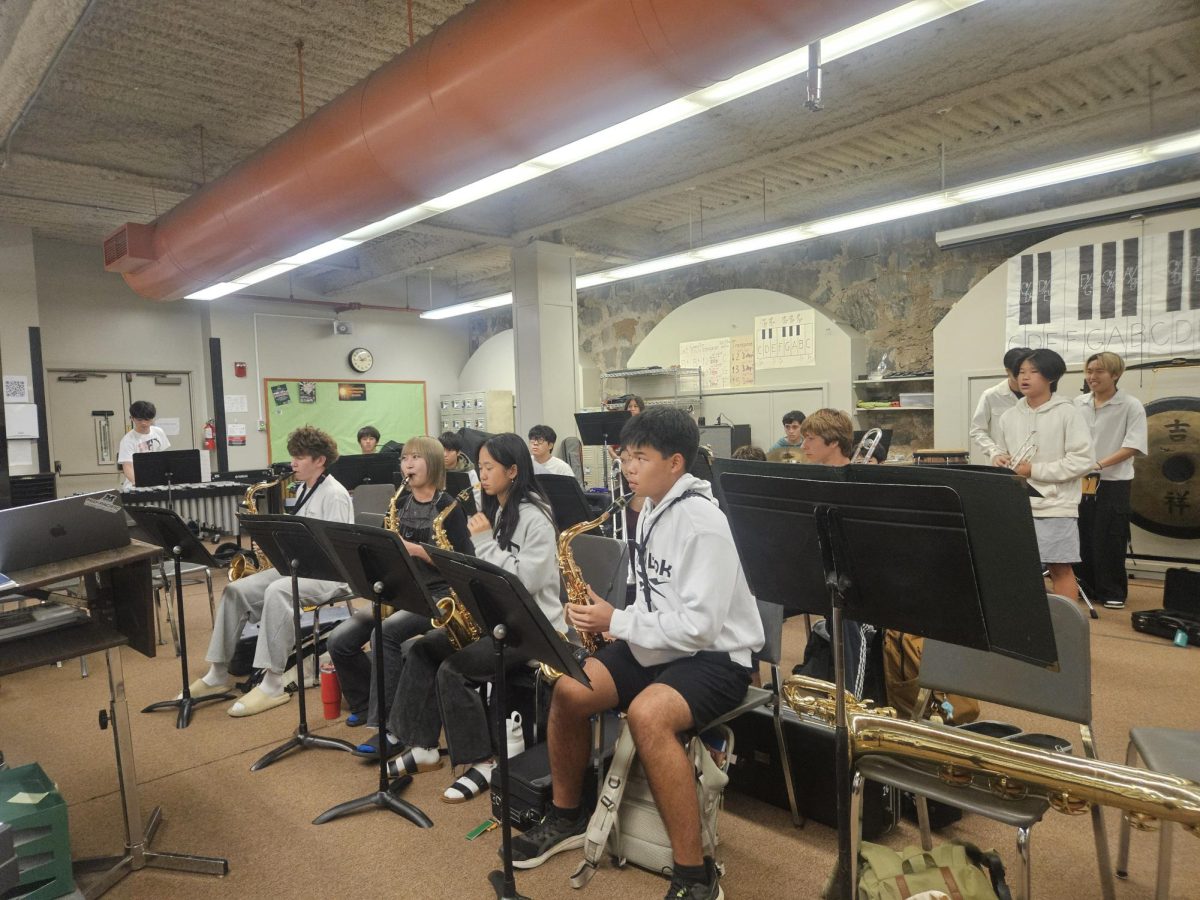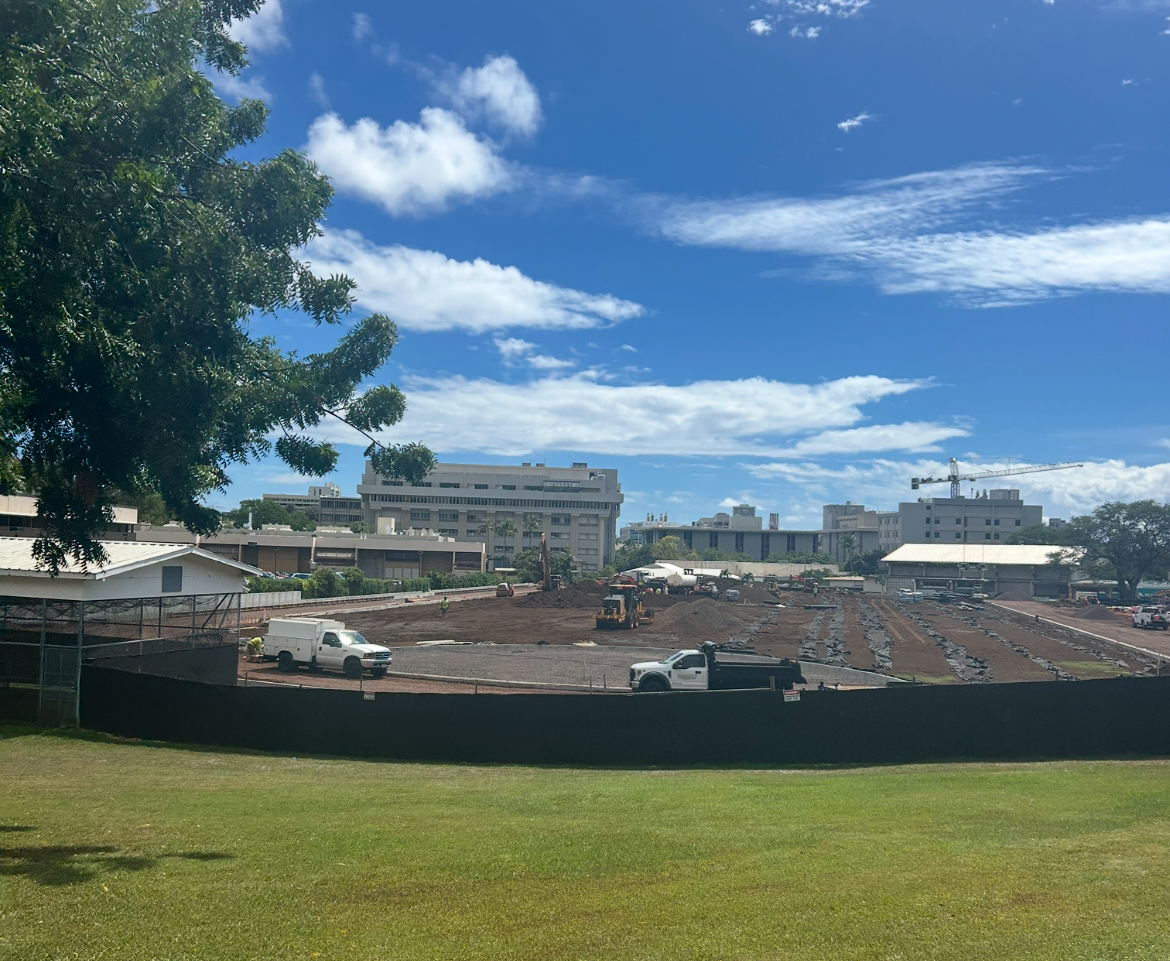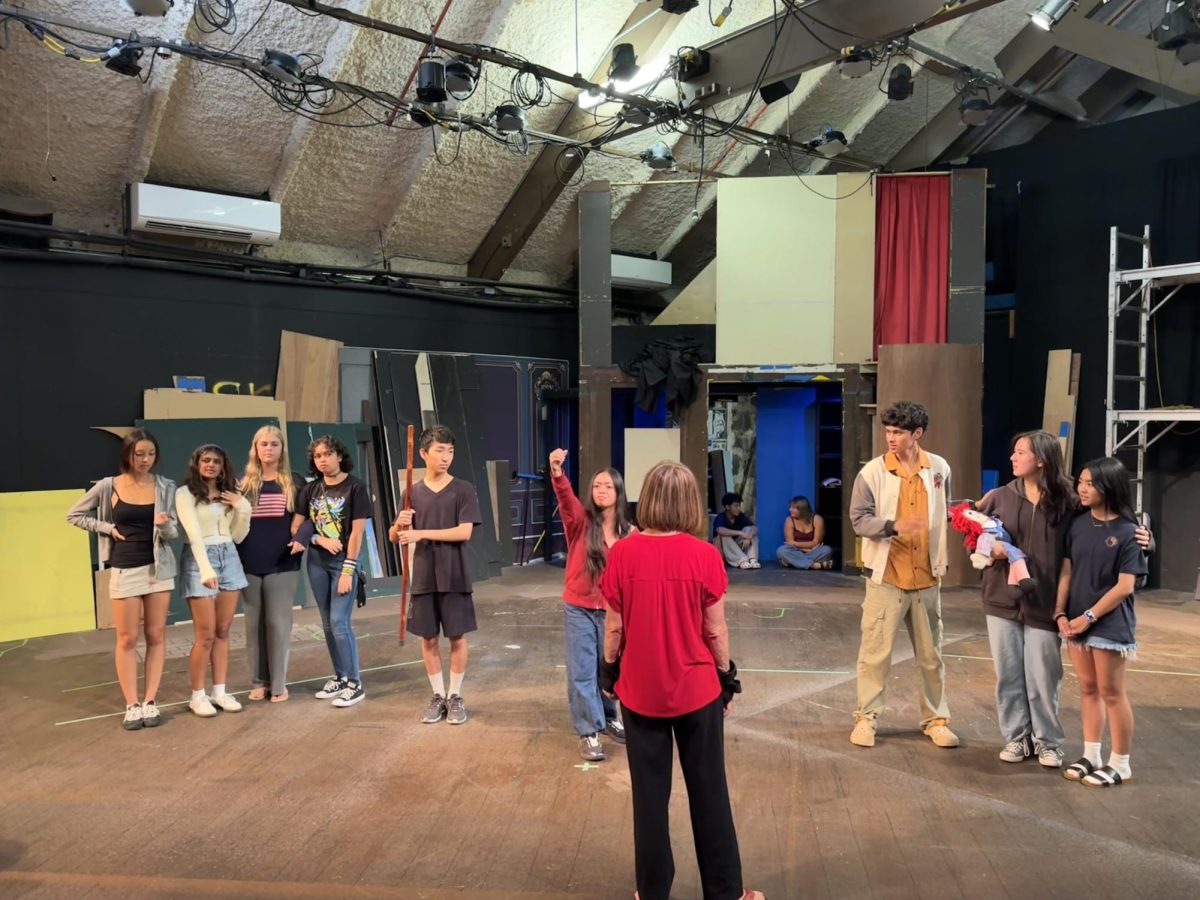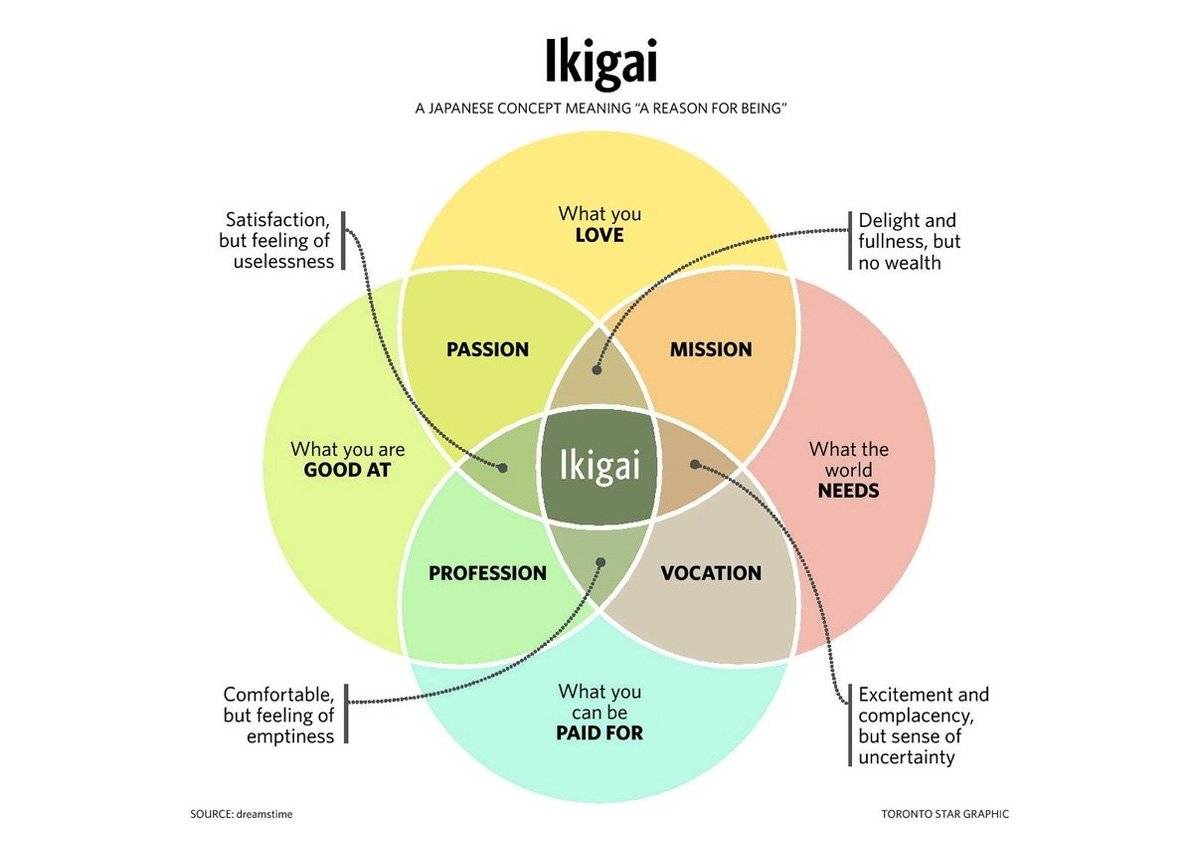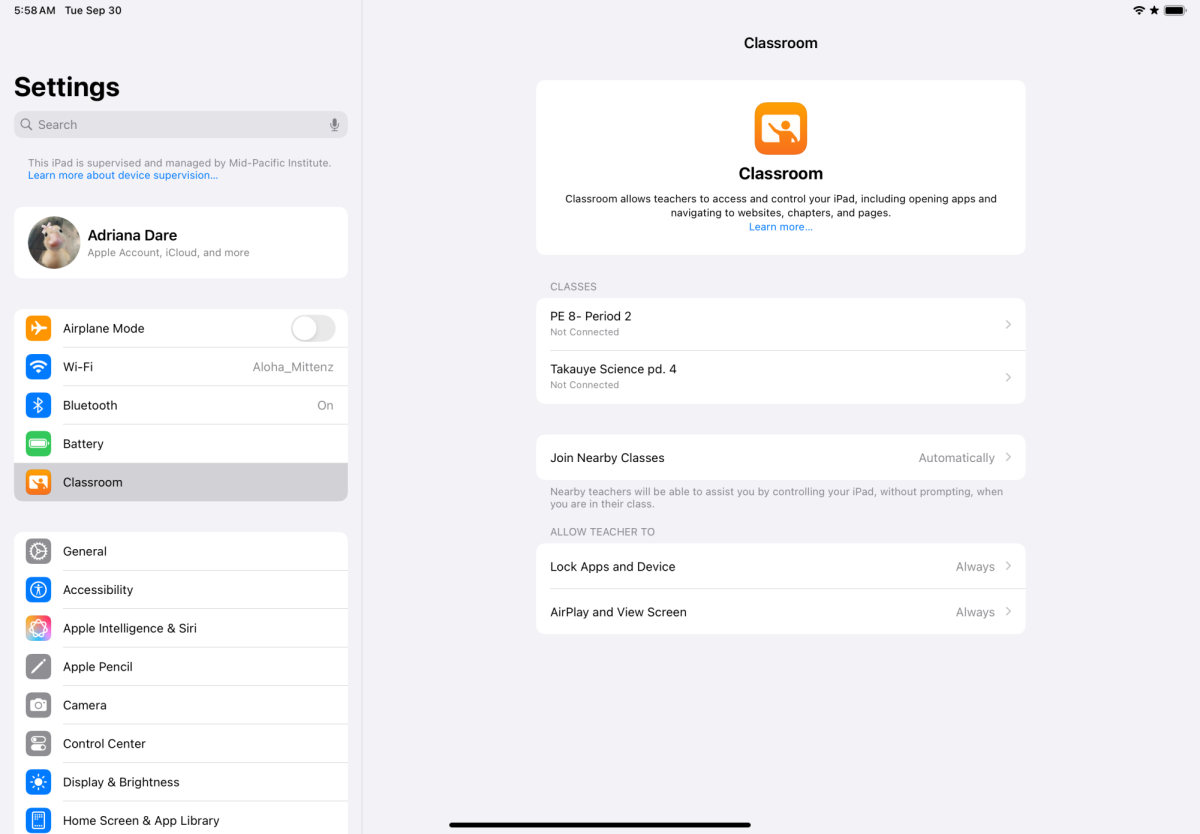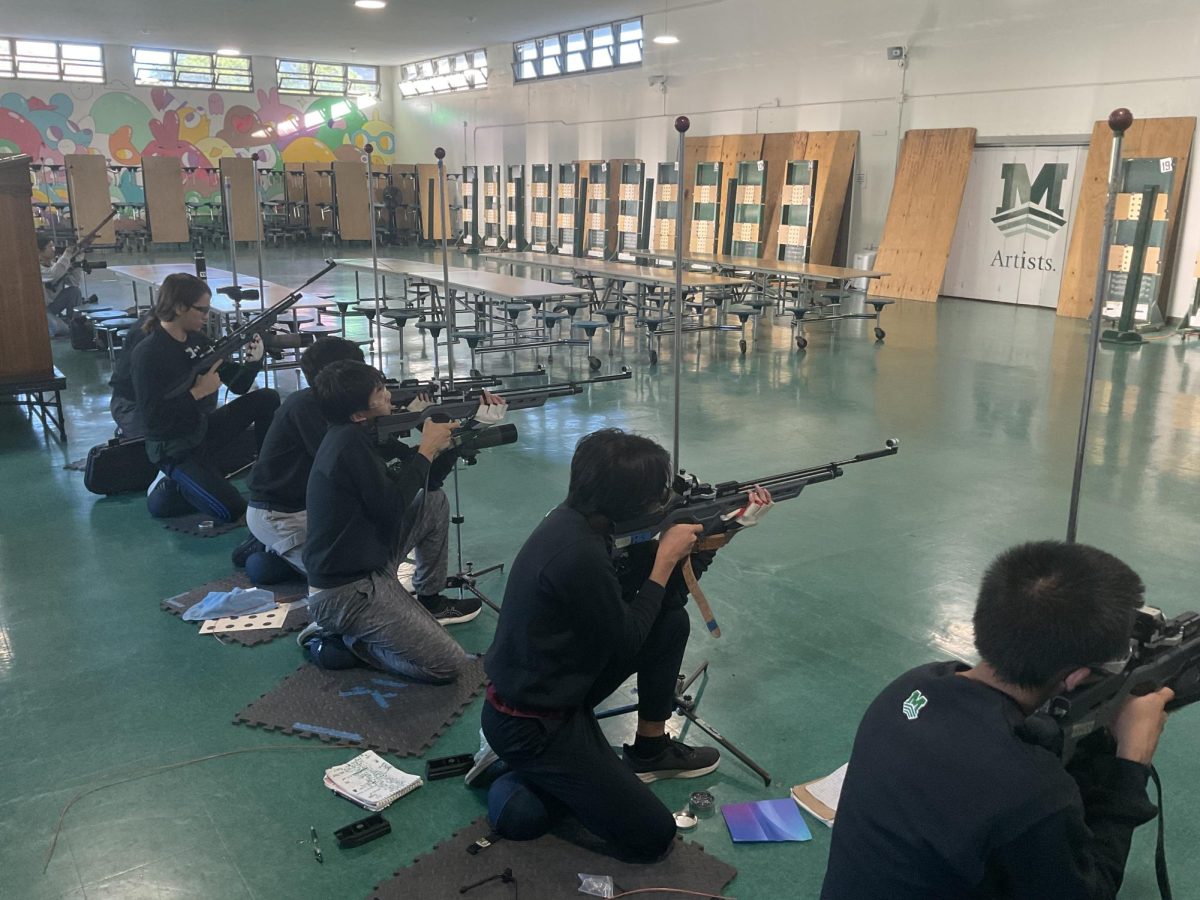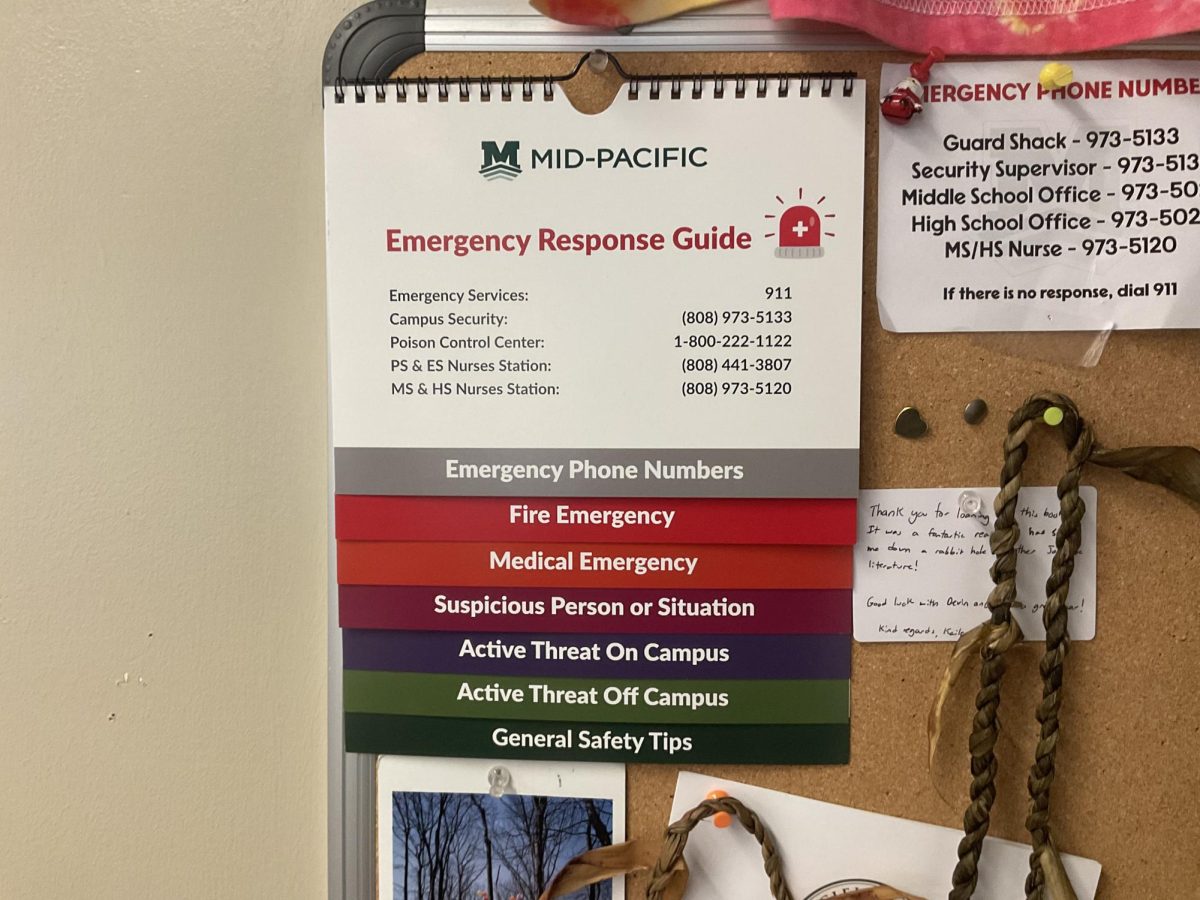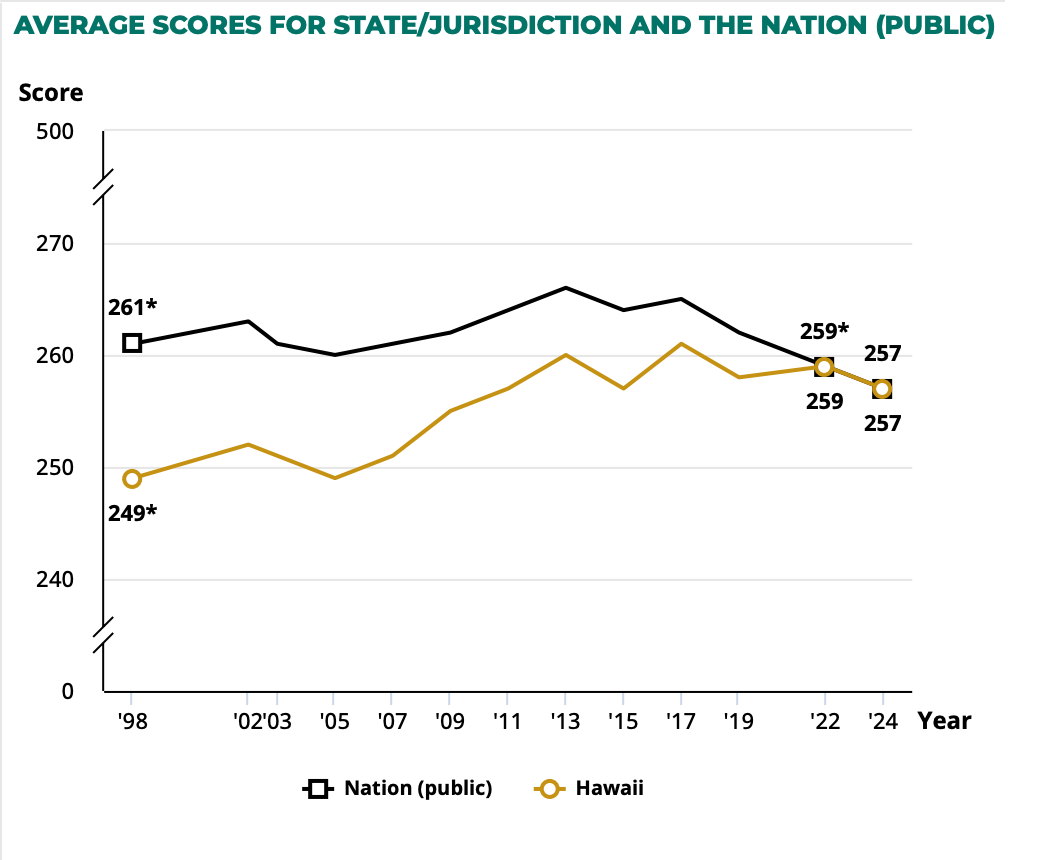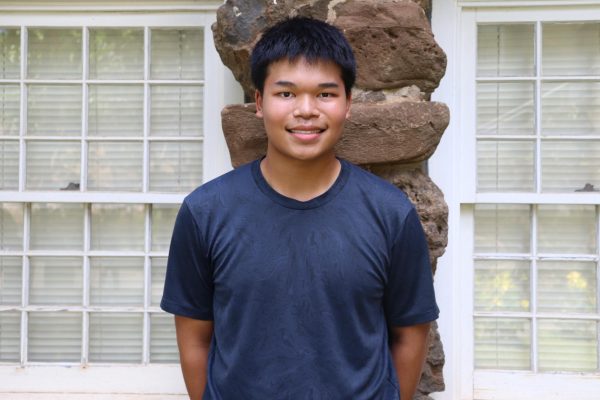At the start of the 2025-26 school year, there were many new changes to the high school student handbook including dress code, formative assignments, and the return of the citizenship grade.
The dress code is a rule that has been reworded a lot throughout the history of Mid-Pacific.. Trying to maintain a balance of professionalism and comfort is difficult, but the administrative team is doing their best to meet students' requests while maintaining its orderly conduct among students. Any student that has an issue with a rule can discuss it with their class’ student leaders or schedule an appointment with their dean or the Principal, Stephen Ly.
“A particular student leader had come to me with a presentation, and she shared that the dress code disproportionately impacted female students,” Ly said.
This is not only a problem at Mid-Pacific, schools throughout America are facing similar dress code problems. Girls' clothes are observed as “inappropriate”, while it’s something similar to what a boy would wear on any other day.
With the new changes to Mid-Pacific’s dress code, this year all students are expected to follow five rules.
First, tops must be worn at all times. All tops must have straps or sleeves. Tube tops and bandeaus are not permitted.
Second, bottoms must be worn at all times and be of an appropriate length. Undergarments must not be visible.
Third, Hats and caps may be worn outdoors, but are to be removed when one is inside a building. Head coverings worn for religious reasons are permitted.
Fourth, footwear is required at all times. Specific types of full covered footwear may be required for specific classes and learning experiences.
Fifth, students are not permitted to wear any clothing that displays as inappropriate.
“To me I wear what I'm supposed to wear at school and I know what not to wear, but when I heard the dress code got loosened, I thought it was a really good change,” Junior Saki Hayashi said.
For a number of years, students have had two types of assignments: formative assignments that don’t count towards student grades, and summative assignments that do count towards students' grades. But this year formative assignments are now 10% of students' grades.
“One thing that was being said to me by many different people was that sometimes formative assessments were not taken seriously. It makes sense because as high school students, you're going to prioritize the important stuff first,” Ly said
While true, the majority of students were not completing formative assessments making them miss out on the majority of future learning opportunities.
“I feel like school and homework is a little bit harder now, because I feel teachers put a lot into formative assessments and that piles up more work for me,” sophomore Evelyn Sulivan said.
This change isn't to not make “lazy” students work harder, but to show students that there is importance in everything, small or big.
But school is not only about prioritizing good grades, but also about building a better character for students so they can result into well balanced citizens.
The citizenship grade was a concept available to previous students at Mid-Pacific before covid-19.
The grade gets put on students' official report cards, but not college transcripts because in previous years, the citizenship grades were shown in college transcripts for both good and bad deeds the student had done while in high school.
Only now was it brought back so that students who do good deeds could be recognized for their actions in school.
“In our current system, we made a very deliberate decision to not include the citizenship grade on the application. Only on the report card,” Ly said. “Students in high school are expected to make mistakes and I don’t think it's fair that a mistake from high school should haunt them till college, and maybe prevent them from getting into their university of choice.”
These rules show that the students' voices matter and are heard. Though not everyone agrees on some rules, they're there to make students, teachers, and faculty work together as a successful community.
“The thing I believe is, we need to be a place where rules are reasonable, and they're upheld, because I want people to come to Mid-Pacific and feel like I'm safe here. And I want it to be really clear to students, any rule that we have, whether it's dress code, or hate speech. Those are real rules, and those are things that you can expect to be upheld, so that you feel safer,” Ly said.

